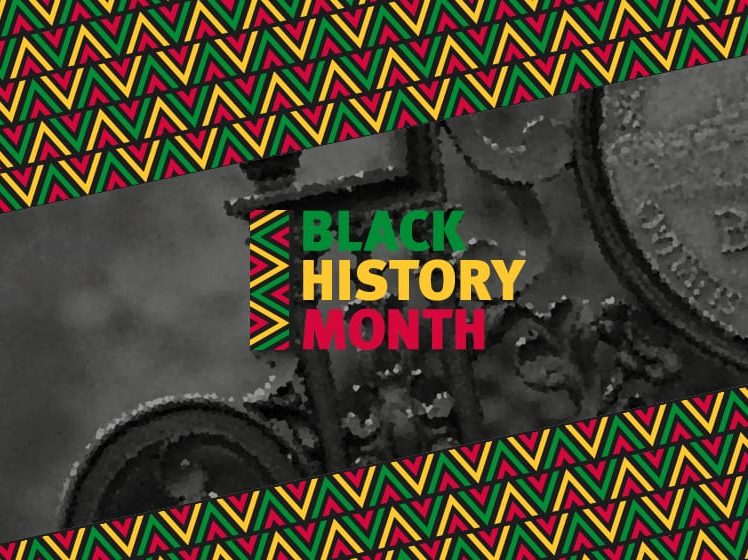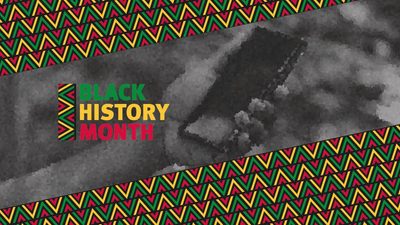Black History Month has been celebrated in the USA in February since 1970. It provides a platform to celebrate the achievements of Black people, which for many years have been overlooked in the teaching of history. It is an excellent opportunity to put a spotlight on the contributions of America’s Black community across science, politics and the arts.
Back in 1706 an enslaved African man was presented to Cotton Mather, a Puritan minister in Boston, as a gift from his church congregation.
The man’s birthname and birthplace are not known, but his new master renamed him Onesimus after a biblical slave. The name comes from the Greek word meaning “useful, helpful or profitable”.
Little did Minister Cotton Mather know how suitable this name would turn out to be.
Onesimus describes smallpox inoculation
Smallpox was one of the most devastating diseases known to humanity and caused millions of deaths before it was eliminated. Early treatments included herbal remedies, bloodletting and even drinking large quantities of beer!
In 1716 Onesimus described to Mather a process of inoculation that he and others from his society had undergone in Africa. He explained that to help prevent a person from getting smallpox, you should rub the pus of an infected person into an open wound on the arm.
This wasn’t a vaccination, but it did activate an immune response and protect against the disease most of the time. This process is also known as variolation.
Mather was fascinated. He researched the method and discovered that it had long been practised in China, Turkey, and in Africa among sub-Saharan people. He became a convert and spread the word across Massachusetts with the hope that smallpox could be prevented.
However, Mather’s fellow white Bostonians were not as enthusiastic as he was. They ridiculed this method because they were suspicious of African medicine and of Onesimus’ motives.
Religious leaders also felt that inoculation was an affront to God because it interfered with divine providence. Mather’s reputation was seriously tarnished as a result and his home was even attacked with an explosive device!
Smallpox hits Boston
A few years later, Mather got a chance to redeem himself. When an outbreak of smallpox struck Boston in 1721, he promoted Onesimus’ inoculation procedure and, along with physician Zabdiel Boylston, began to implement it.
Zabdiel Boylston first inoculated his 6-year-old son and two of his slaves. He then went on to help inoculate a total of 280 people during the Boston smallpox epidemic.
Among those inoculated, only 6 patients died (2.2%). Compared to 844 deaths among 5,889 non-inoculated smallpox patients (14.3%), the overall success of the inoculation process was clear.
The legacy of Onesimus and smallpox
The medical breakthrough seen during the 1721–22 smallpox outbreak in Boston helped set the stage for vaccination. In 1796, Edward Jenner developed a smallpox vaccine that would later become compulsory in Massachusetts.
Without Onesimus’ knowledge and willingness to share it, hundreds more lives could have been lost to smallpox.
As for Onesimus himself, he was able to partially buy his freedom from Mather, but little is known of his later life. However, in a 2016 Boston magazine survey, Onesimus was listed among the 100 ‘Best Bostonians of All Time’.
In 1980, the World Health Organization (WHO) declared smallpox entirely eradicated due to worldwide immunisation efforts. Smallpox remains the only infectious disease to have been entirely wiped out.
Shape your future with science
Inspired by the story of Onesimus and his contribution to scientific understanding? You too can shape the world with science.
Vaccines have long been an important way to protect people from infectious diseases, and now they are arguably more important than ever before. However, it’s important to note that there are disparities in vaccination rates and trust in vaccinations in some cultures, and among different groups, races and ethnicities.
Some of this stems from a history of mistreatment of racial and ethnic minorities by medical establishments. For Black Americans, the Tuskegee Syphilis Study of 1932 is just one example of this type of exploitation.
So isn’t it interesting to know that the practice of vaccination in the country was in fact inspired by an enslaved Black man?
With the spread of COVID-19, research into vaccines is a global priority. Scientists across the world have worked around the clock to find effective vaccines in an unprecedentedly short timeframe. These monumental efforts will save lives and minimise the spread of the coronavirus so that economies and societies can begin to recover.
Students and staff at our partner university, Simmons University in Boston, have been contributing to fighting coronavirus through an impressive data-gathering project and community engagement.
Indeed, healthcare does not exist in a world of its own, so this type of community interaction is an important part of working in this industry. Healthcare workers should be culturally competent and aware of the socioeconomic conditions of the patients they treat.
US universities offer opportunities to minor in subjects such as African American Studies, Sociology or Social Work, which can be a great way to complement healthcare studies.
You can study a healthcare-related degree at Simmons and enjoy the University’s location in the city’s Longwood Medical Area, which is home to 21 medical and academic institutions, including Harvard’s medical, dental and public health schools.
Simmons’ incredible location means that you could benefit from the University’s affiliation with top healthcare institutions and boost your career opportunities.
Take a look at the degree finder below to see what you can study at Simmons University to shape the world with science.




